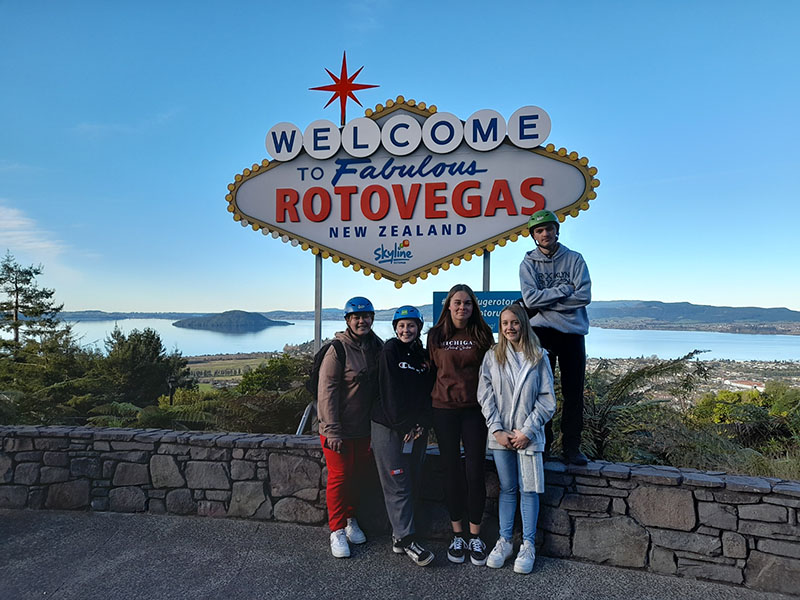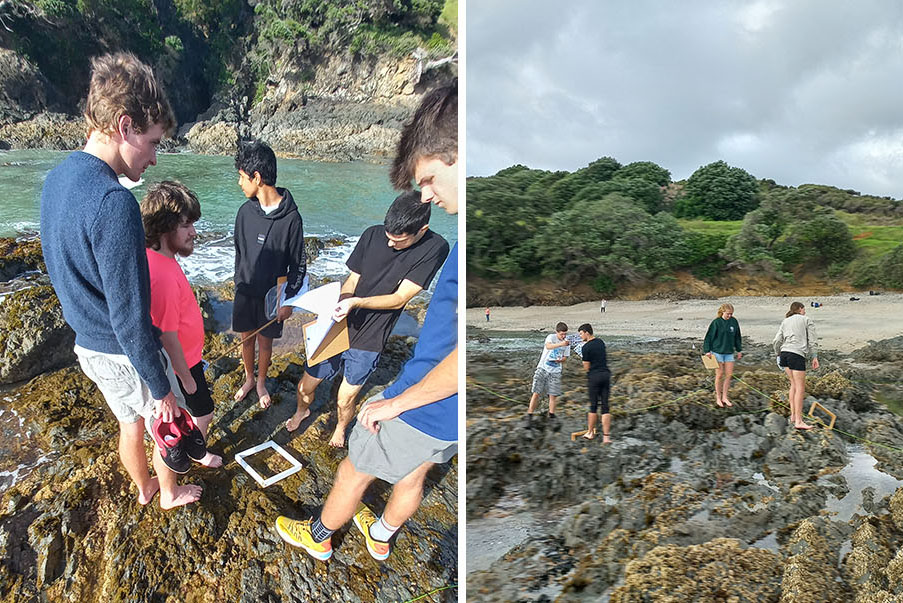Social Studies
Social Studies covers a range of subjects and skills at Years 7 to 13.
Social Studies covers a range of subjects and skills at Years 7 to 13.
Years 7 - 8
In Years 7 and 8, social studies combines with science to form inquiry learning. With teacher guidance, all students choose and research topics such as the Pacific World, Communities, Exploration and Local Industries.
Year 9
In Year 9 all students complete a range of topics examining Polynesian migration to Aotearoa New Zealand, the ingenuity that has led to the development of gadgets and inventions, the impact of pandemics, and social responses to them, human rights, sustainability, and the history of the Kaipara. There is a heavy focus on developing students' abilities to think critically, evaluate information and examine how groups and individuals respond to shifting circumstances. We also undertake literacy-enriching learning activities in order to prepare students for engaging with sophisticated written information.

The Year 10 course is designed to prepare students for the range of skills required for senior social science subjects and beyond. The topics we examine include research skills, Te Tiriti o Waitangi, government and laws, immigration and the movement of people, the economic world, the New Zealand Wars, and issues and opportunities for future technologies. Students examine different perspectives and values pertaining to these topics, and are asked to consider issues and potential solutions in these areas. The focus for Year 10 is to ensure that students are well prepared to undertake NCEA studies in any of the social sciences, as well as the strengthening of critical thinking and core literacy skills. In Year 10 we also offer Commerce as an optional course, which gives students an introduction to accounting, budgeting, economics and basic marketing.
From Years 11-13, social studies broadens out into geography, history, media studies, business/economics and tourism. All of these subjects have an internally assessed series of assessments and most have external assessments in November. A more detailed description of each subject is contained in the current OHS course directory.
Tourism is one of the world's largest industries and significantly impacts New Zealand's economy.
The study of tourism involves predicting the future – working out what people want from their leisure and travel pursuits, and how those wants are delivered and managed. In this subject we learn about the national and international tourism industry, and how to deliver a quality visitor experience. We learn about specific destinations and attractions throughout New Zealand and the world.
Much of the course involves industry visits from people involved in the tourism industry, field trips to Paihia and Rotorua, and the exploration of tourism careers and further educational opportunities.
Geography looks at mapping, sustainability, extreme natural events, urban studies, Amazonia, coastal studies, planning an event and global studies.
History involves the examination of cause and effect and developing the skills to assess the reliability of evidence. This is done through various historical contexts, such as the Battle of Te Ika-a-Ranganui, Parihaka, the Spanish Armada, the Battle of Actium, civil rights in the USA, and the French Revolution.


Business/Economics takes the best parts of two subject areas to give students a wide overview of the business-economic world. Economics is covered first to understand how price controls demand and supply and how government, producers and consumers react to external shocks. Then students study the basic marketing mix to help them run their own business, which they do after writing a business plan covering: finance, operations, human resources and marketing.
Media Studies engages students in actively exploring, understanding, creating and enjoying the media and media products. In learning about the media and its links with society, media studies empowers students to become active citizens who are critical and creative thinkers. Media Studies enables students to put theory into practice in their own media production, engaging them in a creative activity which increases personal confidence and practical skills. Students have the opportunity to work cross curricular with Digital Technology curriculum in the use and production of moving image technologies.